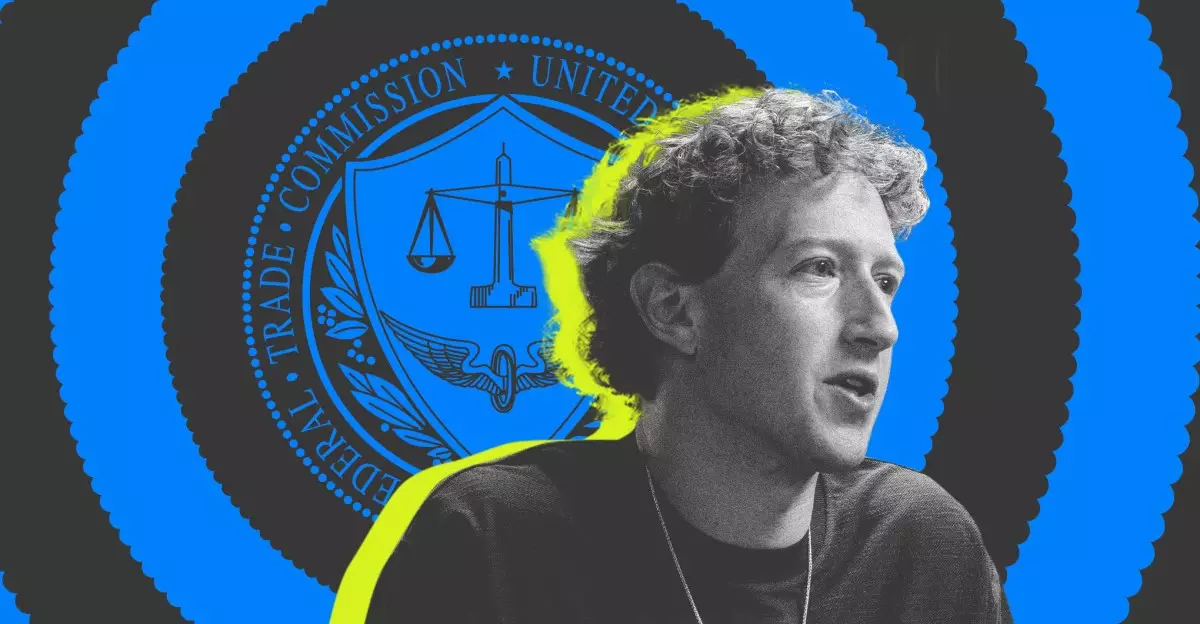Meta, the parent company of Facebook, Instagram, and WhatsApp, is currently embroiled in a significant antitrust case that could reshape its future. This legal battle, which sees CEO Mark Zuckerberg taking the stand, is a striking reflection of how technological innovation can often tread the precarious line between fostering competition and maintaining monopoly power. While Zuckerberg’s narrative has largely revolved around innovation and user connection, it’s important to scrutinize the implications of these claims in light of his company’s strategic maneuvers.
Imagine a timeline in which Zuckerberg chose to chart a different course altogether. With ideas ranging from establishing Instagram as an independent entity to spearheading an acquisition of Snapchat, it’s clear that his oversight was marked by an entrepreneurial spirit—one characterized by bold ambitions but perhaps overshadowed by a drive to eliminate competition. This raises a critical question: does the pursuit of connectivity inherently justify the consolidation of influence, even if it potentially stifles market diversity?
The FTC’s Challenge: A Quest for Definition
At the heart of this antitrust case is the conversation around market definition. The Federal Trade Commission (FTC) argues that Meta’s acquisitions—namely Instagram and WhatsApp—were preemptive moves to undercut emerging competitors. Their stance hinges on their ability to determine a specific market: personal social networking services. However, Zuckerberg counters this by asserting a “fluid” view of the market, citing other substantial competitors like TikTok and YouTube, which significantly broaden the context in which Meta operates.
The tension in this legal description mirrors the complexities of the digital landscape; services don’t exist in neatly defined boxes. This ambiguity complicates the case, emphasizing the need for regulators to adapt their frameworks to a sector that evolves at breakneck speed. This dynamic raises a broader issue: should regulatory bodies continue to use traditional methods to understand industries that are continuously reshaping themselves?
The Choices That Could Have Shaped Meta Differently
Zuckerberg’s testimony provides a rare glimpse into the internal dialogues that shaped Meta’s trajectory. His musings reveal alternative paths that the company could have taken—paths that may or may not lead to an innovative tech ecosystem. For instance, had his bid for Snapchat been accepted, it is conceivable that Meta would now be an even larger entity, perhaps altering the very fabric of social media engagement.
Nevertheless, his suggestion to wipe Facebook friends’ lists for a “fresh start” underscores a recurring theme: the struggle between user satisfaction and company strategy. Could this desperation for user experience finally reflect a broader understanding of digital fatigue? By considering radical ideas like this, one can argue that Meta may recognize a need to evolve, not solely out of legal obligation but in response to a rapidly changing user base.
The Layering of Advertising and User Experience
Another contentious aspect of the trial concerns Meta’s ad strategy. The FTC posits that consumers have limited choices, allowing the company to progressively increase its ad load. Zuckerberg’s hypothetical consideration of an entirely ad-driven feed speaks volumes about the balance (or lack thereof) between monetization and user satisfaction in the tech sector. Framing advertisements as equal to normal content raises ethical concerns regarding users’ perceptions of their environments.
This monetization strategy brings forth an existential question for Meta: at what point does the pursuit of profit undermine the user experience? The erosion of trust among users can lead to disengagement—a risk every digital platform must meticulously navigate. Zuckerberg’s reflections hint that Meta is aware of this precarious balance, yet their approach suggests a company driven by growth at all costs.
Internal Communiqués: The Weight of Decision-making
The trial also sheds light on the internal communications among Zuckerberg and his executives, revealing the fears driving Meta’s decisions. The apprehension surrounding Instagram’s rapid ascendancy indicates an acute awareness of the competitive landscape. If Meta’s acquisitions were genuinely about enhancing user experience, one might expect a more collaborative approach rather than one defined by fear-driven ownership.
These internal dialogues highlight a fundamental disparity: the difference between public rhetoric surrounding competition and the privately held anxieties that fuel corporate decision-making. By examining this dichotomy, we gain insight into a larger narrative concerning the ethical responsibilities of tech giants, particularly when it comes to nurturing a vibrant market rather than simply consolidating power. The unfolding saga of Meta serves not just as a legal battle but as a broader critique of the tech landscape—one where the lines between innovation, competition, and ethical responsibility continue to blur.

